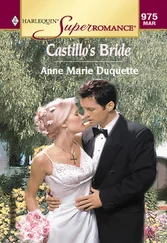“Oh my God— I almost forgot— there’s someone I want you to meet. A friend of mine from work brought him.”
Iris leans back on the railing. She rolls further back onto her heels, lets her toes point up at the sky. It occurs to her that she doesn’t know how sturdy the railing is. That maybe she shouldn’t be dropping her weight. She feels for any sign of give.
“He’s really smart, and he’s weird. He’s old.”
“Giving me the hard sell?”
“No, but in a good way. I’m not saying it right. Fuck. I might be a little drunk.”
Iris sighs. She sips her wine, licks her teeth. “Which one is he?”
Mallory comes over to where Iris is standing and points.
“I’m probably not going to talk to him.”
Mallory rolls her eyes and fiddles with her necklace, the clasp of which has circled round to the front.
“Do what you want. I’m just trying to be a fabulous hostess.”
“I can’t believe you know this many people.”
“I have to go check on the apple turnovers. You coming in?”
“No, I’ll see you inside.”
Mallory steps through the door and sashays toward the kitchen, clutching and releasing hands as they dart out to greet her.
Iris turns away and looks down at the tops of passing cars, the sounds of various engines blending together with crickets and the languorous wind, creating an endless hum, the vibrating texture of the night. If she closes her eyes, she can separate out each sound, then seamlessly enmesh them again. She drains her glass and turns around, hesitant as she approaches the sliding glass door.
There are some things that Iris can say that she loves:
She loves to eavesdrop. Whenever she is out in public, she makes an effort to listen to the conversations swirling around her. Most of the time, they are uninteresting, or she cannot gather enough information to figure out what is going on. But every once in a while, she will witness bare, bleeding emotion in the most inappropriate places. Her all time favorite was the time she heard a woman in a convenience store cry hoarsely into a cell phone, “You never loved me. You tried damned hard but you never did.” Her face was red and blotchy, and several strands of hair fell sloppily out of her loose ponytail as she ran her index finger over a can of tomato soup again, and again and again. Iris hated herself for the thrill this moment gave her, but there was pleasure in the guilt. She imagines that this is similar to what a masochist must feel as a needle pierces the soft skin underneath a fingernail. If someone were to tap her on the shoulder at one of these moments and ask her what she was doing, she would not have an answer.
She loves to look at a photograph of Neil, at maybe nine or ten years old, holding their dog, Sebastian, on his lap. The dog is enormous on his small, knotty, bare legs. He peeks out from behind Sebastian’s long upright trunk with a goofy, unselfconscious grin, squinting against the sunlight. She keeps this photograph on the green wooden desk in her bedroom, underneath what she privately calls The Pile of Importance— mostly insurance papers, pay stubs, and other bits of paper that they say a person is supposed to keep. When she looks at this photo, she feels the heat of so many summertime backyards, of the satisfaction of putting foxtails in her hair in a neat row, her father snapping picture after picture of the clouds moving overhead, while her mother sipped iced tea, and crunched down on the ice cubes. The photo is a close-up, so there’s no telling where it was taken, which house, which summer. But Neil is young enough in it, that she can place it vaguely, in an era. She tucks it away again. It is the only photo she has.
When she is driving, stuck in traffic or spacing out at a red light, on her way to or from work, sitting still, lazy fingers hanging off the bottom of the steering wheel, Iris often repeats these images in her mind, over and over, like some kind of visual mantra. She knows she is doing it again when cars behind her start honking. She doesn’t know why. She can’t stop.
When she snaps back into reality, she turns up the radio. She knows every song in rotation at the local oldies station, and hums along, quietly, in the back of her throat.
She loves music more than anything else on earth, and without it, she is certain that she would die.
At twelve-fifteen, Iris leaves the office as she does most days— locking the door and setting the elaborate alarm system if she is alone or the last to leave— and walks three blocks to a café. She orders a chicken sandwich with a side salad, takes her food out onto the patio, and sits down facing the sidewalk. Sometimes, she reads thrillers from the seventies with titles like Blood Secrets. Other times, she reads fashion magazines. But mostly, she listens to the two old men at the next table. They sit huddled, as co-conspirators, trading information over egg salad. They wear suits and hats on even the hottest days. They always seem agitated, shaking their heads at the ground. Iris listens to them talk about their daughters— the bums they’re dating, the cars they neglect. They talk about tomatoes that won’t grow and new neighbors they can’t seem to warm up to. They go through cup after tiny cup of espresso. But their most common topic is their declining health.
“Every morning I wake up,” the taller one says, “and my legs feel like they’re filled with fishing weights from ankle to thigh, pulling me to the ground.”
“I wake up every morning,” the other one says, “and I can’t even feel my legs, so count yourself lucky.”
“I don’t know which is worse.”
“Me either.” The two chuckle breathily then, and the tall one takes his hat off and sets it on the table.
She has been reading the same magazine for a month, holding her place half-heartedly, with a finger. She listens, staring at the white space on the page.
She returns from lunch, and walks down the lavender carpeted hallway, unusually gloomy due to a burnt-out light bulb. She stops when she sees that the door to suite 2B is wide open. No one in the building leaves their doors open. They don’t want business to mix; it’s unseemly. In fact, she knows what other businesses reside in the building only by the names on the doors and sheer guesswork. Delaney & Schmidt: Law firm, personal injury. Meridian Corp.: Consulting. Maybe image consulting. She could have it all wrong.
And her own door, Larmax, Inc. She hasn’t figured out yet what that sounds like. She’s heard her boss refer to himself countless times as a businessman, in the business of moving money. She’s typed out letter after letter referring to various deals and agreements, sums and figures with no apparent context, but they never get more specific than that. She wonders if he or any of his past or present associates could explain precisely what it is they do, if she asked, or would they just laugh and ask her to get them some coffee?
The door of 2B is open, and as far as she can see, it is only one small room. She sees a desk, a chair, a computer. Nothing seems out of the ordinary, until she notices the full-size refrigerator, kitchen sink and counter strewn with piles of dirty dishes, filling up a full quarter of the room.
She gets to her own door and struggles with the lock. Her key is a copy of a copy of a copy, so it is barely a key at all, more like a key-shaped nub, and brute force is required to make it work. She turns, pushes, pulls, and still the door won’t budge. She pulls the key out and massages her temple. This is how I get fired, she thinks. They change the locks.
She glances back at the open door, so close to her own they are practically kissing, a wall shared between the two offices. She cranes her neck to see if she can see anything else, and then she takes a step. One more step and she’s inside.
Читать дальше












